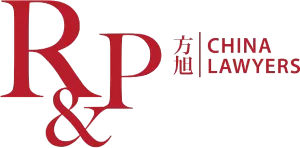Last year, a European client asked us to conduct a tax due diligence on their subsidiary in Shanghai, to determine whether all taxes had been duly paid. One of the key issues that we uncovered, was that the Chinese entity had been wrongfully claiming VAT exemption on services provided to their HQ. Finally, the client decided to settle with the local tax office, by paying outstanding VAT as well as late fees – for a total amount of more than CNY 12 million.
VAT Exemptions on Cross-border Services
In general, China requires the payment of VAT (value added tax) at 6% on all services, including those services that are exported (i.e. provided to a foreign company). However under the Provisions on Zero VAT Rate and Tax Exemption Policies Applicable for Cross-border Taxable Acts (2016), certain cross-border services can be exempt from VAT, while other services are subject to a zero rate:
- VAT exempt: Authentication and consultation services, professional and technical services, and business support services.
- Zero-VAT: design services, software services, information system services and business process management services.
A condition for the exemption or zero rate, is that these services are fully consumed overseas.
Services Fully Consumed Overseas
The same Chinese legal provisions provide that services are deemed "fully consumed overseas" if both of the below conditions are met:
(1) the actual recipient of the services is overseas, and
(2) the services are unrelated to goods and immovables in China.
It is easy to determine whether the actual recipient of the services overseas – i.e. outside of Mainland China. However, the law does not clarify what it means for services to be related, or unrelated to goods of immovables in China. It is therefore left to the competent local tax bureau to determine whether this legal condition is met in a specific situation. It should not surprise that generally, they will take a conservative approach on this subject.
There is a further complication: in many cities including Shanghai, companies will apply the VAT exemption without going through an approval process with their local tax bureau. In that system, companies are left to decide themselves whether service income is VAT exempt, and so we regularly see local finance teams take a relatively assertive in this respect, which will help to shore up their own P/L. But if the tax bureau later challenges the exemption, then not only does this lead to a huge VAT bill; late fees will have to be paid as well, at 0.05% per day. Moreover, the tax bureau can even decide to apply a penalty of 50% - 500% of the underpaid tax; or in very serious cases, transfer the case to the local Public Security Bureau for investigation of the crime of tax evasion.
Risk & Recommendations
The risk of a tax audit may be limited in practice, but it is also just one whistleblower away. And the longer the practice continues, the higher the potential late fees if at some point the tax bureau challenges the practice. Our general recommendation is to look at this issue carefully, and if possible discuss (if needed, informally) with the local tax bureau their internal policies and perspectives. In any case and considering the potentially enormous impact, one key point is that the decision on whether to exempt the income from VAT, should always be made at the appropriate level – and never by the company's local accountant.
The content of this article is intended to provide a general guide to the subject matter. Specialist advice should be sought about your specific circumstances.
We operate a free-to-view policy, asking only that you register in order to read all of our content. Please login or register to view the rest of this article.


